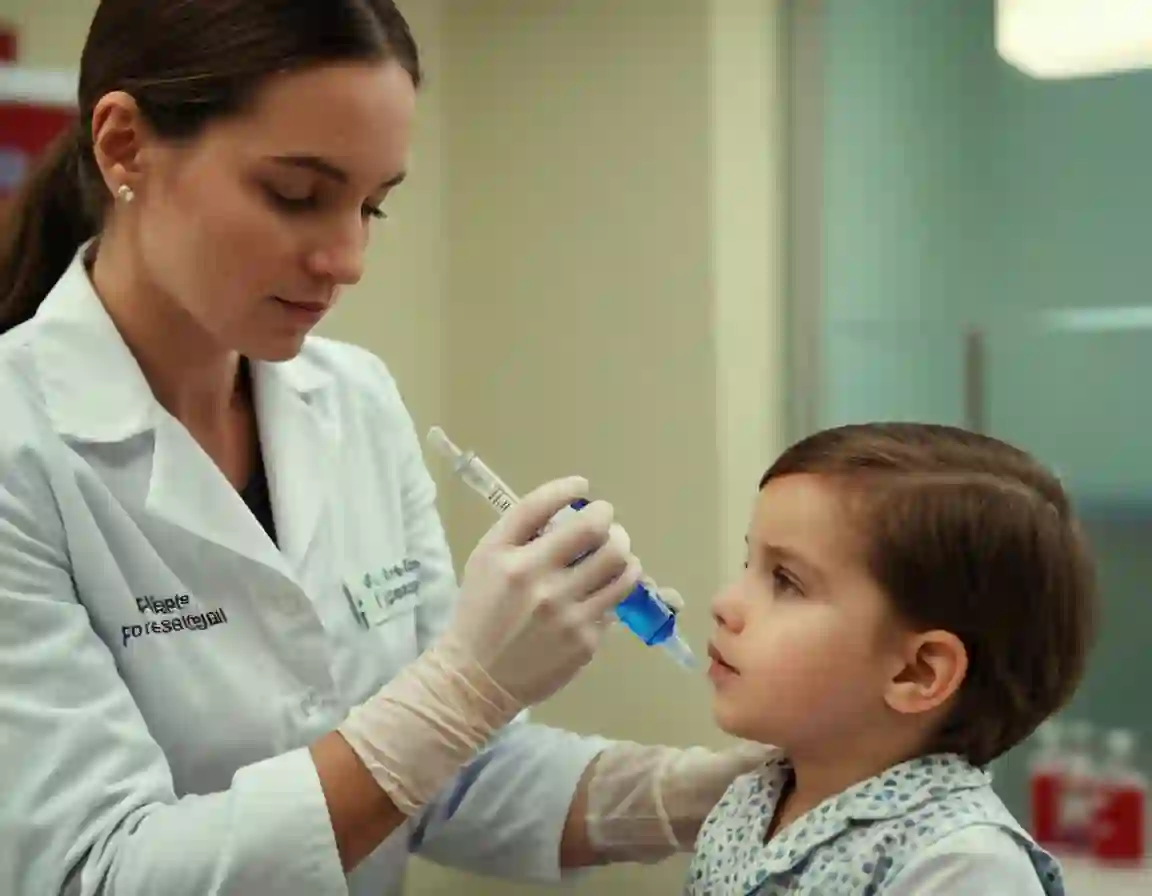
Vaccines have taken the health of the entire world by storm, saving millions from preventable diseases. Among these vaccines is the DTwP-HepB-Hib vaccine, a strong combination that aims at protecting against five major diseases in one shot. Whether you're a parent, a healthcare provider, or someone simply interested in learning about vaccines, this guide takes you through everything you need to know about the DTwP-HepB-Hib vaccine.
What Is the DTwP-HepB-Hib Vaccine?
The DTwP-HepB-Hib vaccine is a combination shot that helps protect against five serious diseases: Diphtheria, Tetanus, Pertussis (Whooping Cough), Hepatitis B, and Haemophilus influenzae type b (Hib). This vaccines is mainly given to infants and toddlers.
Key Ingredients in the Vaccine
- DTwP: Helps protect against Diphtheria, Tetanus, and Pertussis.
- HepB: Helps protect against Hepatitis B, an infection that causes liver damage by the Hepatitis B Virus.
- Hib: Preventive against infections caused by Haemophilus influenzae type b bacteria, such as pneumonia and meningitis.
How the Vaccine Works
The DTwP-HepB-Hib vaccine induces active immunity in the body by stimulating the production of antibodies against these five diseases. This allows the body to develop a protective mechanism that guards against the infections if they occur again.
Diseases Protected Against by the DTwP-HepB-Hib Vaccine
Diphtheria, Tetanus, and Pertussis (DTwP)
- Diphtheria: A poisonous bacterial infection that affects the throat and airway.
- Tetanus: Often referred to as "lockjaw," a bacterial infection that affects the nervous system.
- Pertussis: Also commonly known as whooping cough, a very contagious respiratory illness.
Hepatitis B (HepB)
A virus that invades the liver and can cause chronic liver disease, liver cancer, or even death.
Haemophilus influenzae type b (Hib)
Causes serious infections such as pneumonia and meningitis, especially in toddlers.
Importance of DTwP-HepB-Hib Vaccine in Children's Lives
Early Immunization Benefits
Immunizing children early helps them avoid these serious diseases during the most vulnerable years of their lives. It strengthens the immune system and ensures that they are protected from these diseases before potential exposure.
Herd Immunity and Its Importance
When a high percentage of the population is vaccinated, the spread of the disease is significantly reduced. Herd immunity protects those who cannot be vaccinated, such as infants, elderly patients, or individuals with certain medical conditions.
DTwP-HepB-Hib Vaccine Schedule
Schedule of Doses
Typically, DTwP-HepB-Hib vaccines are scheduled to be administered through successive doses as follows:
- 6 weeks
- 10 weeks
- 14 weeks
This schedule ensures the immune system is properly prepared to fight these diseases as the child grows.
Catch-Up Schedule for Missed Doses
If a dose is missed, a catch-up schedule should be followed. Parents should consult their healthcare provider to ensure the child is up-to-date on vaccinations.
How Is the Vaccine Given?
Methods of Injection
The DTwP-HepB-Hib vaccine is given by intramuscular injection, usually in the thigh or upper arm.
Common Sites for Administration
- Infants: Anterolateral aspect of the thigh.
- Older Children: Deltoid muscle of the upper arm.
Side Effects and Risks of the DTwP-HepB-Hib Vaccine
Common Side Effects
Like all vaccines, the DTwP-HepB-Hib vaccine may cause minor side effects, including:
- Fever
- Redness or swelling at the injection site
- Irritability
Rare but Serious Risks
An allergic reaction or seizure can occur, although these are uncommon and much less likely than the benefits of the vaccine.
Who Should Not Receive the DTwP-HepB-Hib Vaccine?
Medical Contraindications
Children with a severe allergic reaction to a previous dose or a component of the vaccine should avoid this vaccine.
Allergic Reactions
If a child has known allergies to any component of the vaccine, it should not be administered. Consult your doctor for further information.
What to Do After the Vaccination
Monitoring Reactions
After vaccination, monitor the child for any reactions such as fever, persistent irritability, or seizures. Contact a healthcare provider if any of these occur.
When to Call a Doctor
Seek medical help immediately if your child exhibits severe reactions such as trouble breathing, difficulty swallowing or talking, or noticeable swelling of the face or hives. If the child is very drowsy or irritable, contact a doctor right away.
DTwP-HepB-Hib Vaccine and Global Health
Impact on Disease Eradication
The widespread use of combination vaccines, including DTwP-HepB-Hib, has significantly reduced the incidence of these diseases worldwide; in some cases, these diseases have been nearly eradicated.
Vaccine Availability in Different Countries
Although the DTwP-HepB-Hib vaccine is included in most national childhood immunization programs, its availability and administration may vary by country and, sometimes, within regions of the same country. It may also be expensive in some locations.
Conclusion
The DTwP-HepB-Hib vaccine is a crucial tool in preventing five serious diseases in young children. By adhering to the recommended immunization schedule, parents can ensure their children remain healthy and protected from these infections.
FAQs
How Long Does Immunity Last?
Protection from the DTwP-HepB-Hib vaccine lasts several years, but booster doses may be required.
Can Adults Be Vaccinated?
The vaccine is primarily recommended for infants and young children. Adults receive different vaccines for these diseases.
Is It Safe to Administer Concomitantly with Other Vaccines?
Yes, the DTwP-HepB-Hib vaccine can be safely administered alongside other vaccines, such as pneumococcal or rotavirus vaccines.
Are There Alternatives for the DTwP-HepB-Hib Vaccine?
While separate vaccines for the individual diseases are available in some countries, the combination vaccine is recommended for its efficiency and convenience.
What Should I Do If My Child Misses a Dose?
Contact your child's healthcare provider to schedule a catch-up vaccination to keep the immunization schedule on track and ensure full protection.
Please check your baby's vaccination schedule by clicking the 'Check Now' button.
Check Now